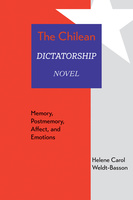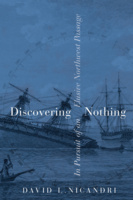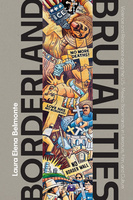Get Involved!
Stories of Bahamian Civil Society
Using the Caribbean as a rich site of observance and concentrating on the island nation-state of The Bahamas, Get Involved! uncovers the hidden and under-documented practices of “philanthropy from below.” Williams-Pulfer shows the long history and continued significance of civil society and philanthropic engagement in The Bahamas, the circum-Caribbean, and the wider African Diaspora.
Feminist Comedy
Women Playwrights of London
Feminist Comedy argues that the development of modern feminist thought is closely linked to theatrical comedy. Through analysis of plays by Catherine Clive, Frances Brooke, Frances Burney, Hannah Cowley, and Elizabeth Inchbald, the book demonstrates that these authors turned to comedy as a site of feminist critique, practice, and experimentation.
.
Feeling Democracy
Emotional Politics in the New Millennium
The contributors to Feeling Democracy examine how both reactionary and progressive politics in the twenty-first century are driven largely by emotional appeals to the public. These essays cover everything from immigrants’ rights movements to white nationalist rallies to show how solidarities forged around gender, race, and sexuality become catalysts for a passionate democratic politics.
Cruel Destiny and The White Negress
Two Novels by Cléante Desgraves Valcin
Cruel Destiny (Cruelle Destinée) and The White Negress (La Blanche Négresse) are the first and second novels published by a Haitian woman, Cléante Valcin. Translated to English now for the first time by Jeanne Jégousso, these novels offer an incisive perspective on the fate, romance, and reversals of characters in Haiti, the Pearl of the Antilles, during the 1920s and 1930s.
Criminalized Lives
HIV and Legal Violence
Criminalized Lives profiles people charged in Canada with the crime of not disclosing their HIV-positive status to sex partners. Examining how criminalization disproportionately punishes poor, Black and Indigenous people, gay men, and women in Canada, Alexander McClelland investigates the consequences of criminalizing illness, which results in people being subjected to state violence rather than treated with care.
Consuming Anxieties
Alcohol, Tobacco, and Trade in British Satire, 1660-1751
Consuming Anxieties examines the varied representations of alcohol and tobacco products in literary satire from 1660-1751. Tracing the nuanced satirical treatments of these consumable items throughout the period, it considers understudied plays, poems, and essays alongside more canonical works, shedding light on critical responses to the rise of consumer culture.
Brotherhood University
Black Men's Friendships and the Transition to Adulthood
In Brotherhood University, Brandon A. Jackson examines how a group of collegiate Black men form an emotion culture characterized by vulnerability, loyalty, and trust, which facilitated the creation of brotherhood. This enduring bond provided the men with the necessary social support to navigate the precarity of the transition to adulthood and gendered racism both during and after college.
American Anti-Pastoral
Brookside, New Jersey and the Garden State of Philip Roth
Combining literary analysis with historical research, Thomas Gustafson examines how Philip Roth’s acclaimed 1997 novel American Pastoral draws upon the history of Brookside, New Jersey as its model for the fictional hamlet of Old Rimrock. American Anti-Pastoral peels back myths about the bucolic Garden State countryside to reveal deep fissures within the heart of American democracy.
Mississippian Women
This volume highlights the vital role women played within the diverse societies of the Mississippian world, which spanned the present-day United States South to the Midwest before the seventeenth century.
Latin American Comics in the Twenty-First Century
Transgressing the Frame
France and Algeria
A History of Decolonization and Transformation
An examination of the complicated history between France and Algeria since the latter’s independence.
Damming the Gila
The Gila River Indian Community and the San Carlos Irrigation Project, 1900–1942
The third in a series, this volume continues to chronicle the history of water rights and activities on the Gila River Indian Reservation. Centered on the San Carlos Irrigation Project and Coolidge Dam, this book details the history and development of the project, including the Gila Decree. Embedded in the narrative is the underlying tension between tribal growers on the Gila River Indian Reservation and upstream users. Told in seven chapters, the story underscores the idea that the Gila River Indian Community believed the San Carlos Irrigation Project was first and foremost for their benefit and how the project and the Gila Decree fell short of restoring their water and agricultural economy.
Fallen Comrade
A Story of the Korean War
A touching tribute to the sacrifice and friendship of three Mississippi soldiers in the Korean War
Killed by a Traffic Engineer
Shattering the Delusion that Science Underlies our Transportation System
Fixing the carnage on our roadways requires a change in mindset and a dramatic transformation of transportation. This goes for traffic engineers in particular because they are still the ones in charge of our streets.
In Killed by a Traffic Engineer, civil engineering professor Wes Marshall shines a spotlight on how little science there is behind the way that our streets are engineered, which leaves safety as an afterthought. While traffic engineers are not trying to cause deliberate harm to anyone, he explains, they are guilty of creating a transportation system whose designs remain largely based on plausible, but unproven, conjecture.
Killed by a Traffic Engineer is ultimately hopeful about what is possible once we shift our thinking and demand streets engineered for the safety of people, both outside and inside of cars. It will make you look at your city and streets—and traffic engineers—in a new light and inspire you to take action.
Juneteenth Rodeo
Invisibility and Influence
A Literary History of AfroLatinidades
Indigenous Health and Justice
Indigenous communities are practicing de facto sovereignty to resolve public health issues that are a consequence of settler colonialism. This work delves into health and justice through a range of topics and examples and demonstrates the resilience of Indigenous communities.
Grief is a Sneaky Bitch
An Uncensored Guide to Navigating Loss
Florida Trail Hikes
Top Scenic Destinations on Florida's National Scenic Trail
A guide to the best scenic day hikes and overnight trips along the state-spanning Florida Trail, this book helps readers of all backgrounds and experience levels plan an adventure exploring natural Florida.
Fear and the First Amendment
Controversial Cases of the Roberts Court
Chuco Punk
Sonic Insurgency in El Paso
The Archaeology of Arcuate Communities
Spatial Patterning and Settlement in the Eastern Woodlands
The Archaeology of Arcuate Communities
Spatial Patterning and Settlement in the Eastern Woodlands
Imagining Progress
Science, Faith, and Child Mortality in America
Explores the intellectual history of Americans’ divergent assumptions about God, nature, and science
The Secular Care of the Self
Discipline and Its Discontents across the Protestant Atlantic
The Chilean Dictatorship Novel
Memory, Postmemory, Affect, and Emotions
Slime Line
A Novel
A trippy and darkly funny portrait of the commercial fishing industry, Slime Line is the tragicomic yarn of one troubled college dropout’s desperate attempts to remake himself into a hard-nosed working man.
Discovering Nothing
In Pursuit of an Elusive Northwest Passage
Quests to discover a navigable or usable Northwest Passage ended in failure, but as Discovering Nothing shows, the many attempts to find what nature did not provide led to the construction of its transcontinental equivalent, changing the landscape of North America forever.
Borderland Brutalities
Violence and Resistance along the US-Mexico Borderlands in Literature, Film, and Culture
The Specter and the Speculative
Afterlives and Archives in the African Diaspora
The Specter and the Speculative examines how historical subjects and texts within the African Diaspora are re-fashioned, re-animated, and re-articulated, as well as parodied, nostalgized, and defamiliarized. The essays, by emergent and established scholars, explore how “living” archives circulate and haunt the popular imagination, engendering afterlives and liberating prior narratives from their original context.
The Specter and the Speculative
Afterlives and Archives in the African Diaspora
The Specter and the Speculative examines how historical subjects and texts within the African Diaspora are re-fashioned, re-animated, and re-articulated, as well as parodied, nostalgized, and defamiliarized. The essays, by emergent and established scholars, explore how “living” archives circulate and haunt the popular imagination, engendering afterlives and liberating prior narratives from their original context.































